Tuke baronets, of Cressing Temple (1664)

- Sir Samuel Tuke, 1st Baronet (c. 1615–1674)
- Sir Charles Tuke, 2nd Baronet (1671–1690)
The Tuke Baronetcy, of Cressing Temple in the County of Essex, was a title in the Baronetage of England. It was created on 31 March 1664 for the Royalist army officer and playwright Samuel Tuke. The title became extinct on the death of the second Baronet in 1690.


Baron Moncreiff, of Tulliebole in the County of Kinross, is a title in the Peerage of the United Kingdom. It was created on 9 January 1874 for the lawyer and Liberal politician Sir James Moncreiff, 1st Baronet. He had already been created a Baronet, of Kilduff in the County of Kinross, in the Baronetage of the United Kingdom on 23 May 1871. In 1883 Lord Moncreiff also succeeded his elder brother as 11th Baronet, of Moncreiff in the County of Perth. On his death the titles passed to his eldest son, the second Baron. He was a Judge of the Court of Session from 1888 to 1905 under the title of Lord Wellwood and served as Lord Lieutenant of Kinross-shire between 1901 and 1909. He was succeeded by his younger brother, the third Baron. He was a clergyman. As of 2010 the titles are held by the latter's great-grandson, the sixth Baron, who succeeded his father in 2002.

There have been three baronetcies created for persons with the surname Booth, one in the Baronetage of England and two in the Baronetage of the United Kingdom. The 1916 creation remains extant, the 1835 creation became extinct in 1896 and the 1611 baronetcy has been dormant since 1797. The senior line of the first creation was elevated to the peerage as Baron Delamer and Earl of Warrington.
George Montagu, 1st Earl of Halifax, of Horton, Northamptonshire, was a British politician who sat in the House of Commons from 1705 to 1715 when he became a peer.
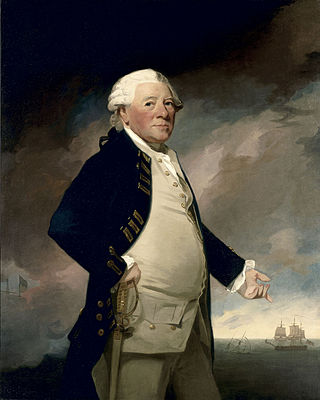
There have been seven baronetcies created for persons with the surname Parker, three in the Baronetage of England, two in the Baronetage of Great Britain and two in the Baronetage of the United Kingdom. Two of the creations are extant as of 2008. Though none of the different families of baronets were related, several supplied a number of flag officers to the Royal Navy.
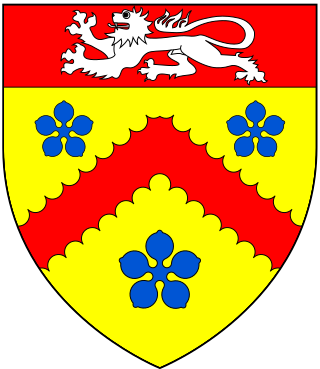
There have been three baronetcies created for persons with the surname Cooke, two in the Baronetage of England and one in the Baronetage of Ireland. One creation is extant as of 2013.

There have been four Baronetcies created for persons with the surname Johnston, two in the Baronetage of Nova Scotia, one in the Baronetage of Ireland and one in the Baronetage of the United Kingdom. One creation is extant as of 2010.
Tuke may refer to:
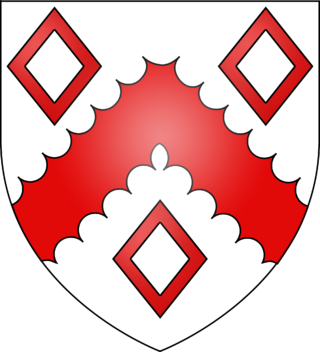
The Spring Baronetcy, of Pakenham in the County of Suffolk, is a title in the Baronetage of England.
Samuel Tuke may refer to:
Sir Samuel Tuke, 1st Baronet was an English officer in the Royalist army during the English Civil War and a notable playwright. He is best known for his 1663 play The Adventures of Five Hours, possibly co-authored by George Digby – the play was produced by the Duke's Company and later proved an influence on Richard Brinsley Sheridan's opera The Duenna.
Sir Thomas Barnardiston, 1st Baronet was an English baronet, landowner, soldier and MP who sat in the House of Commons at various times between 1640 and 1659. He fought on the Parliamentary side in the English Civil War.

Sir Nicholas Slanning, 1st Baronet FRS of Maristow in the parish of Tamerton Foliot, Devon, was an English courtier and politician who sat in the House of Commons between 1667 and 1689.
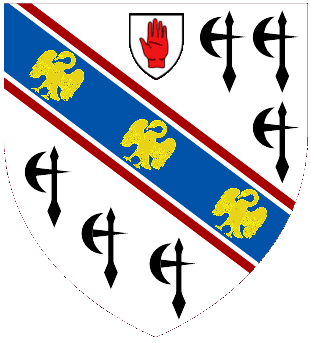
The Dawes Baronetcy, of Putney in the County of Surrey, was a title in the Baronetage of England. It was created on 1 June 1663 for the nineteen-year-old John Dawes. According to the Diary of Samuel Pepys, his marriage to a sixteen-year-old heiress, Christian 'Jane' Hawkins, caused something of a scandal. His third son, William, the third Baronet, was Archbishop of York from 1714 to 1724. The title became extinct on the early death of the latter's grandson, the fifth Baronet, in 1741.
There have been two baronetcies created for persons with the surname Garrard, both in the Baronetage of England. Both creations are extinct.
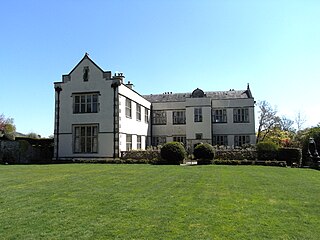
Netherton in the parish of Farway in Devon is an historic estate situated about 3 1/2 miles south-east of Honiton. The present mansion house known as Netherton Hall was built in 1607 in the Jacobean style, restored and rebuilt 1836-44, and is a Grade II listed building.
Sir John Garrard, 3rd Baronet (1638–1701), was an English politician.
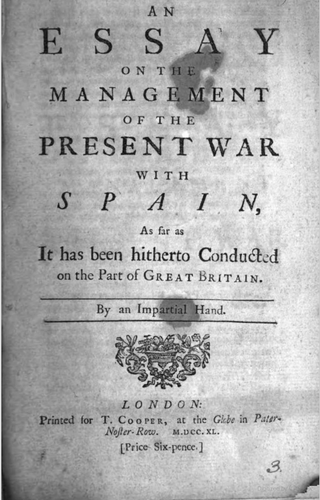
An Impartial Hand is a pen name or attribution used by several authors, notably:
The Adventures of Five Hours is a 1663 comedy play by the English writer Sir Samuel Tuke, 1st Baronet. Based on the play Los empenos de seis horas by Antonio Coello, It is an early example of the developing Restoration comedy tradition. Its success led to a series of sentimental plays in the Spanish style about love and honour, very different to the more sophisticated and cynical comedies which the Restoration era became known for.